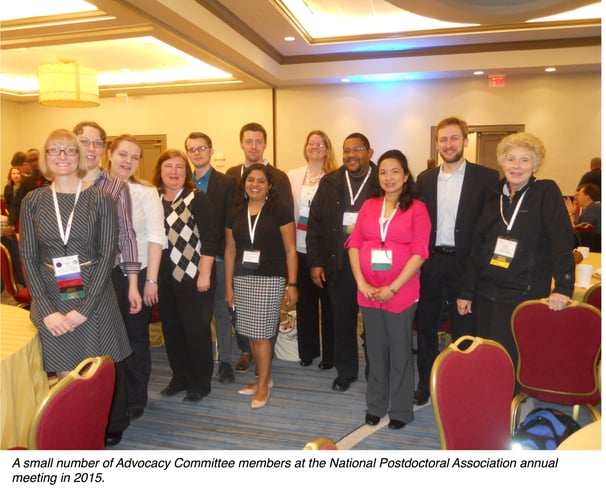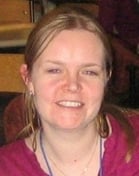The follow post was contributed by guest blogger Juliet Moncaster
Leadership skills are amongst the professional abilities we often hear that scientists should acquire during their PhD and postdoctoral training. Addgene executive director Joanne Kamens has written a 5-part blog on the topic: http://blog.addgene.org/management-for-scientists-managing-vs-leading.
The National Postdoctoral Association (NPA) outlines 6 Core Competencies that all postdocs (but also PhDs) should develop.Among them “Leadership and Management skills”. The NPA states that Postdoctoral scholars should have the skills and techniques needed to facilitate effective teamwork, manage day to day operations within their workplace, and pursue leadership opportunities at the local, institutional, regional, and national levels. These skills will also help the person mentor others more successfully.
But how does one gain such experience? Your institution may offer occasional workshops on leadership and management skills but a longer term and more substantial experience can be achieved by volunteering for a professional organization or a scientific society in your field. My leadership training began with the NPA where I gained invaluable experience working on and later chairing the Advocacy Committee. I’m now furthering my leadership experience working at the Association for Research in Vision and Ophthalmology Research (ARVO). Hopefully sharing my experience will show you how you can get started on your own development as a leader.
Chairing a committee
I was Chair of the Advocacy Committee at the NPA for 5 years and just recently stepped down. I have gained invaluable experience and even after 5 years, was still improving my skills. My involvement with the NPA began gradually. I didn’t become Chair of a Committee overnight (however this can be done if you already have some leadership experience). I was involved with postdoctoral issues first at Brigham and Women’s Hospital/Harvard Medical School and then Boston University (institutions where I’ve worked as a postdoc). I soon realized that many of the issues faced by postdocs and institutions are not local but are national issues. I applied and was successfully granted a travel award to attend the annual NPA meeting to learn more. Having met many people at that conference, I later became involved with the NPA beyond the meeting. I first joined a committee as a volunteer member. The NPA runs its committees through Chairs and Vice-Chairs that lead them. As a committee member, I volunteered for various tasks as things came up. For example, I updated some sections of the NPA’s website.
By volunteering, you can gain experience working with other people mostly online and on monthly phone calls. This has its challenges as meeting in person is often much more productive and makes it easier to build relationships. Nonetheless, the committees would not function without long distance communication and learning to work with people despite the distance improved my verbal and written communication skills. Volunteering on these committees was real work; meetings usually resulted in actionable tasks and I made a point of sticking to deadlines and performing the work I agreed upon (just as I would in my laboratory work). Committee members have to work professionally with the other members on the team and keep the Chair and Vice Chair of the committee updated with their progress. Having effectively worked within the committee, I became Vice-Chair when the current Vice-Chair stepped down. When the Chair then stepped down, I became interim Chair automatically as it was an understood expectation of any Vice-Chair. Following an official assessment and discussion with the Board of Directors, the Board officially voted me in as Chair of the Committee which I then led for 5 years.
Different leadership styles
Being an effective leader requires you to understand how to work with many different types of people both above and below you. During my time at the NPA, there were many changes to the Board of Directors and the Executive Director changed twice. I had to learn how to adapt to different situations and, in particular, to different styles of leadership. As the Chair of the Advocacy Committee, I had to report to the Board of Directors and liaise with the Executive Director. As members changed, I had to learn how to develop new working relationships with these individuals who often had different styles from their predecessors. Changes were implemented and I had to adapt accordingly. For example, the quarterly and annual reports I had to write on behalf of the Advocacy Committee would change format depending on the particular style and requirements of the new Board Members. In some instances I felt like I was going back to previous formats but I learnt to overcome the personal frustration and submit reports in the format requested which in the long run was most beneficial for the organization as a whole. I came to understand that not only was I growing as a leader but the organization was growing too and with that would come necessary changes.
I also learnt to adapt my leadership style according to the needs of my committee members. Some members would need much more guidance, direction, and a clearly laid out plan of action, others would act more independently and some others would need regular re-direction and alignment with the overall mission of the NPA. You must accommodate many different types of people in order to harness their strengths and work effectively.
Leadership responsibilities
Being a leader in an organization, you need to make sure the organization speaks in “one voice” whilst among individual members, many opinions may exist. I learnt to try and bring a group of people to an overall consensus and developed negotiation skills that would be useful in many careers. I learnt that the overall voice may not always be perfectly aligned with my personal viewpoint but, as a leader in the NPA, I had to speak as an NPA representative and speak the NPA’s stance. I had to be professional as I represented the organization, not just myself as a scientist. I learnt to wear different hats and came to understand the responsibilities that come with leadership.
The NPA was a great organization to develop these leadership skills in particular because every year it organized a “Committee Leadership Institute” (CLI) where each Committee Chair and Vice Chairs were invited to spend a weekend together, funded by supporters such as the Burroughs Wellcome Trust. These “leadership institute’ weekends would entail intense training to develop our leadership and management skills. The NPA brought outside experts and many hands-on- and role-playing exercises were held during the weekend. I attended multiple CLIs and benefited greatly by improving my skills and sharing with other more junior leaders what I had experienced and learnt.
Opening doors to further opportunities
Having gained leadership skills and advocacy experience with the Advocacy Committee of the NPA, further opportunities opened up to me. As I spoke about my work with the NPA, I was ultimately invited to join the Advocacy and Outreach Committee within a professional society in my scientific field - ARVO (as mentioned above). I became an official member of the Committee and after a year of my active involvement, I am now Chair-Elect of that Committee. Being part of this organization will not only further develop my leadership and advocacy skills but will also put me in closer connection with other leaders in my research field should I decide to remain here.
In a time when it is so important for postdocs and graduate students to think about their career options, gaining transferable skills such as leadership skills can only assist you and make you more qualified for future career opportunities. Becoming involved is not too difficult and you can find opportunities around you. You just need to be prepared to take on the challenges and be proactive and engaged once you are in a leadership role or in a track towards one.
Many thanks to our guest blogger Juliet Moncaster!
Juliet Moncaster is an Assistant Professor at the Boston University  School of Medicine and is the former Chair of the Advocacy Committee at the National Postdoctoral Association (NPA).
School of Medicine and is the former Chair of the Advocacy Committee at the National Postdoctoral Association (NPA).
Follow Juliet on Twitter @JulietAdvocSci.
Further Reading
- Find more Career articles on the Addgene Blog
- Read Joanne Kamen's Management for Scientists Series
Topics: Science Careers, Early Career Researcher







Leave a Comment